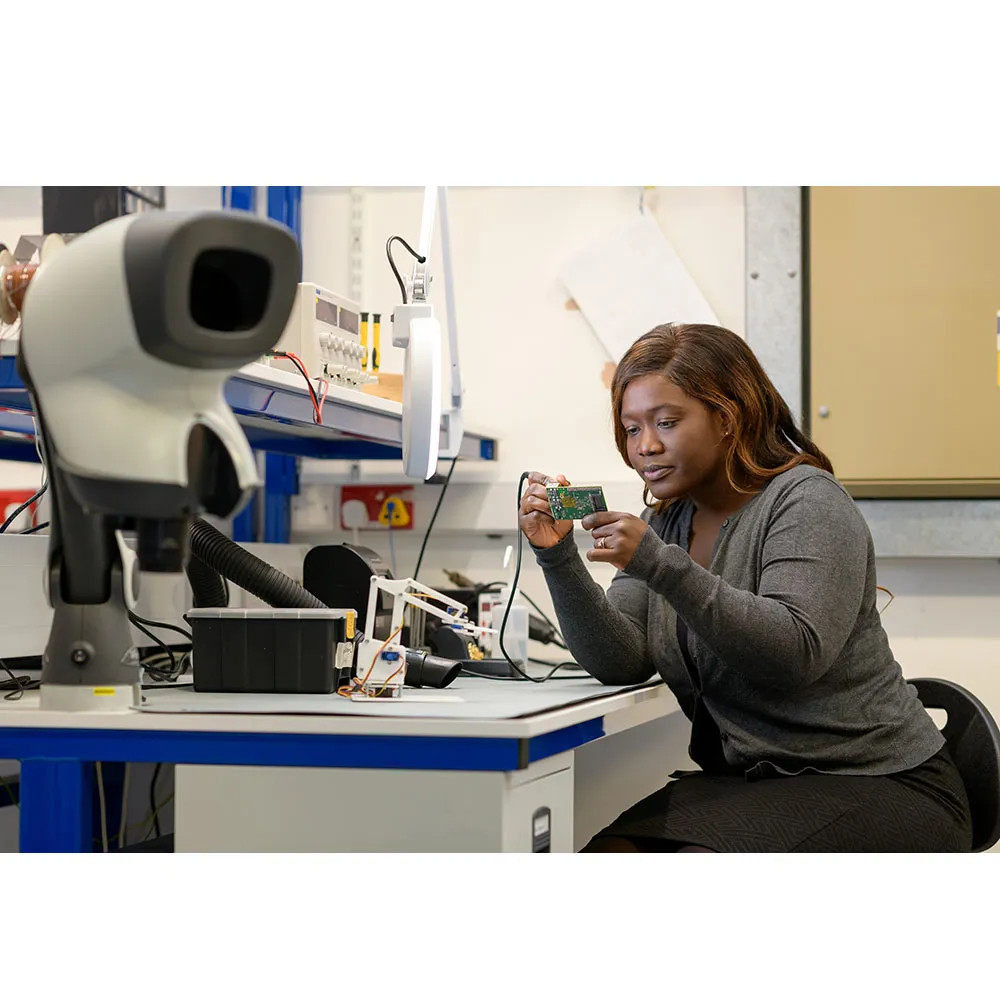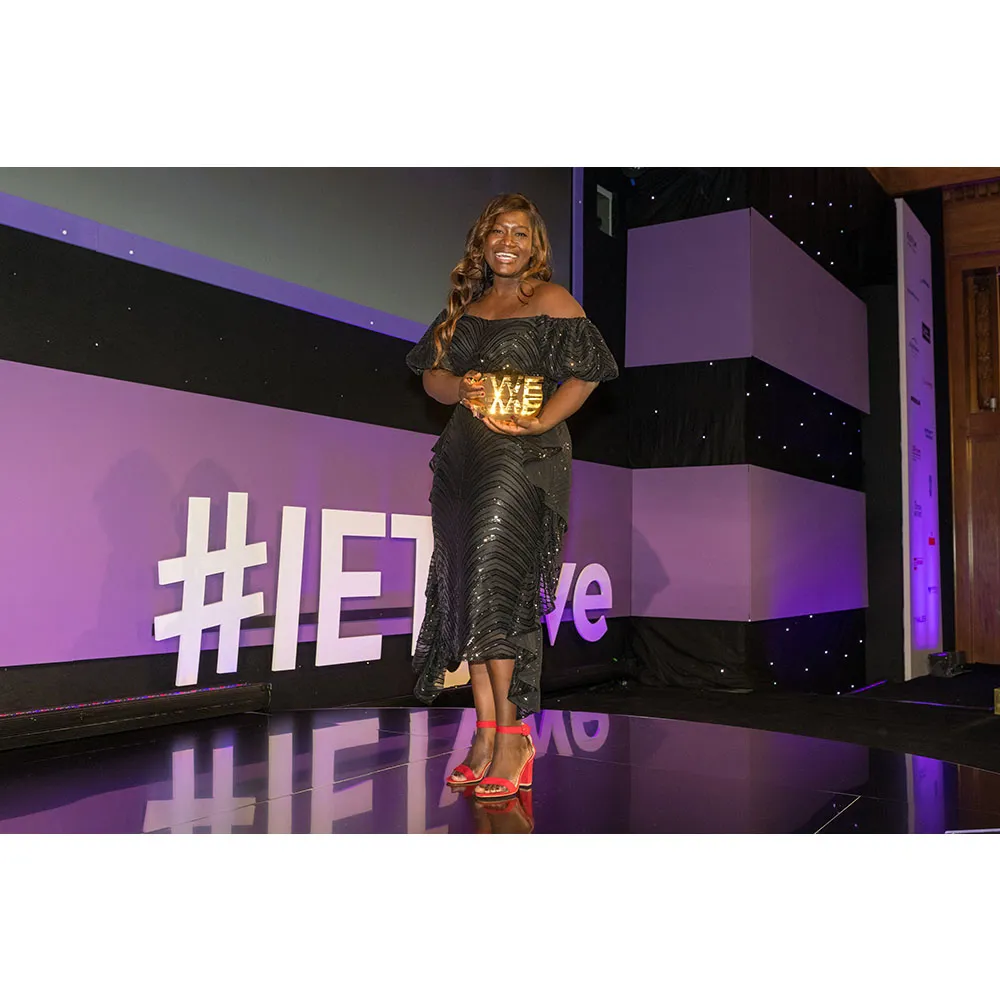Ama Frimpong
Job Title: Head of Product Development
Company you work for: 52 North Health Ltd
When you were a child, what did you want to be when you grew up?
Growing up I wanted to be a doctor or a surgeon, but now in my career, I get to combine my passion for medicine with engineering to improve people’s health.
What is the biggest impact your work will or could have in the future?
My work saves the lives of patients living with cancer through the development of NeutroCheck®. This is a low-cost, portable device that helps to identify those who are at risk of neutropenic sepsis - a life-threatening medical emergency occurring in immunosuppressed chemotherapy patients. My work also helps to empower people when it comes to looking after their health.
What excites you most about STEM?
I find the interdisciplinary nature of STEM incredibly exciting! To me, that means there is no problem or innovation that STEM cannot tackle when we collaborate and share expertise, skills and ideas!
What or who inspired you to do your job, and what do you love most about it?
It’s the long-lasting impact that my work can have on us, friends, families and people all around the world that inspires me the most. I love knowing that my job can benefit and change the future for each and every one of us.
How might your role work in space, sport or on the Moon in the future?
The great thing about medical engineering is how multifaceted it is – it’s involved in everything! In terms of space exploration, we need medical engineering to figure out how to monitor the vital signs of the astronauts and ensure they’re at their healthiest, so we know when to provide treatment or care. The suits will need to be specially designed for exposure to the moon’s atmosphere, and playing moon football or any sport in space will need a careful medical input. Astronauts also travel with bespoke medical devices and equipment specially designed to help them identify health issues and/or treat conditions. My role would also involve designing solutions for countering the prolonged effect of reduced gravity on human bones and muscles. The opportunities are endless!



What do you think the future for humans in space looks like?
I believe that as our visits to space become more and more frequent, this might eventually lead to establishing permanent settlements on the moon or perhaps Mars, and maybe even living in space. The future of space exploration will result in venturing to unexplored planets or asteroids, and protecting Earth against them.
Would you like to play football on the Moon one day and why?
I would love to play football on the moon! What an experience it would be to take something so familiar and every-day to such an extraordinary location.
How does the work you do now link to our Moon United campaign to play football in the future?
With the work I do to improve people’s health, I think it’s very relevant to this campaign as you must be medically fit to be able to go to space in the first place. If you add on the extra challenge of playing football in such extraordinary conditions, it will be necessary to design products or solutions to keep the astronauts fit and healthy.
What were your favourite subjects at school and why?
I loved Maths and Chemistry most of all. I liked how predictable, structured and logical maths was and chemistry fascinated me because it helped me understand everyday items.
What advice would you give to a young person considering a career in STEM?
I would want them to know that a career in STEM is so fulfilling and fun! Imagine working in a job where you can create the newest technology or ‘toys’ and then get to play around with them, all while having the potential to provide an innovative solution for universal problems, create lasting impact on society and ultimately change the world.
